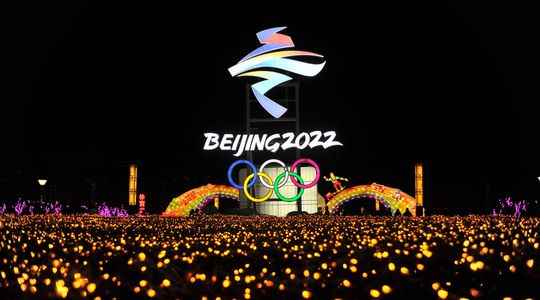NO / “The empty chair policy is not effective”
By Cécile Coudriou, President of Amnesty International France
Amnesty International’s position has always been that a boycott of sporting events, whether total or diplomatic, is not a solution. On the other hand, respect for human rights should really be taken into account for the awarding of the Olympic Games. China is one of the countries which, like Qatar, seeks to use major events to display a showcase in this area that is much more presentable than reality. We are not fooled and believe that the best response is to take on the Chinese regime at its own game, taking advantage of this event to shine the spotlight on all the violations committed and which it wants to hide.
This is why, while being aware of the difficulties, we call on those who will visit China, political or economic leaders, and in particular the Minister of Sports, Roxana Maracineanu, to seize every opportunity to express their concerns on human rights, through, for example, social networks. We know that athletes are bound by a certain neutrality because of article 50 of the IOC, but we invite those who wish to do so to take a stand.
At the same time, our global movement continues to mobilize for the Chinese authorities. From France, we will also make a plea to the deputies so that they call with us on the government to raise its voice. Our main objective: to obtain an international and independent investigation – which China brazenly refuses – into the crimes against humanity of which the Uyghurs are victims in Xinjiang and human rights. We respect calls for a boycott, but we believe that Chinese propaganda fits well with the empty chair policy. And the impact of criticism is stronger when it is also formulated on the spot, without being intimidated.
YES / “Athletes will be Xi Jinping’s gladiators”
By a group of intellectuals (Fabien Ollier, Pascal Bruckner, Pierre-André Taguieff, Robert Misrahi, Robert Redeker…)
The French government takes up the ideological intoxication of Chinese power: sport has nothing to do with politics, athletes must be “preserved”. Yet the Games are not a world apart, above ground and outside of time.
For geopolitical scientist Carole Gomez, the boycott would be an “obsolete weapon”. This is to forget that the campaigns to boycott the Moscow Games, for example, made it possible to sensitize international public opinion on the crimes of the Soviet bureaucracy and to send a message of support to the democratic dissidents hunted down by the KGB.
On the other hand, it has never been demonstrated that athletes constitute a “soft-power very powerful” capable of making totalitarian regimes doubt. success of the Berlin Games” which contributed to the “glorification of the Nazi regime” (Pierre de Coubertin, The newspaper, August 27, 1936) was a decisive step in legitimizing the Hitler regime.
The athletes who will parade in front of the caciques of the single party will become accomplices of a crude propaganda operation by conscientiously playing the puppets of a Chinese shadow theatre. They will be Xi Jinping’s gladiators.
We saw during the 2008 Beijing Games what was the fate of the nunuches little badges “For a better world” that the French sportsmen wanted to display: in the closet! The choice of Thomas Bach and the Olympic nomenklatura to entrust a draconian and war-mongering country with the possibility of “putting sport at the service of humanity”, according to the pompous sophistry of the “Olympic truce”, is the choice of pure and simple alignment with the strategy of geopolitical hegemony of a regime that intends to impose its law by all means.
Full text and full list of signatories can be found here
